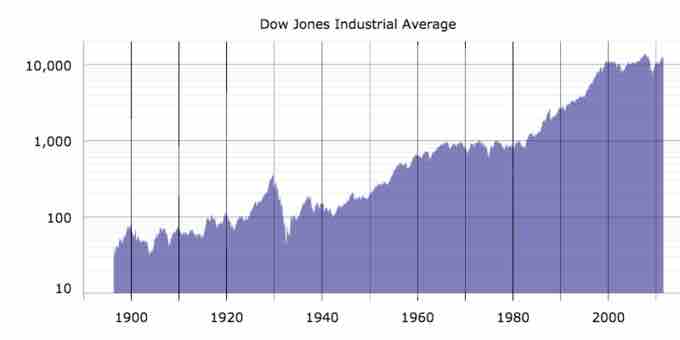Market Reporting
A stock index or stock market index is a method of measuring the value of a section of the stock market. It is computed from the prices of selected stocks (sometimes a weighted average). It is a tool used by investors and financial managers to describe the market and to compare the return on specific investments.

Historical Graph of the Dow Jones Industrial Average
This graph shows the general increase in the DJIA over the last century. Particularly notable is the growth from around 1,000 points in the late 1980s to around 10,000 points in 2005.
An index is a mathematical construct, so it may not be invested in directly. Many mutual funds and exchange-traded funds attempt to "track" an index. The funds that do may not be judged against those that do.
Stock market indices may be classed in many ways. A 'world' or 'global' stock market index includes (typically large) companies without regard for where they are domiciled or traded. Two examples are MSCI World and S&P Global 100.
A 'national' index represents the performance of the stock market of a given nation—and by proxy, reflects investor sentiment on the state of its economy. The most regularly quoted market indices are national indices composed of the stocks of large companies listed on a nation's largest stock exchanges, such as the American S&P 500, the Japanese Nikkei 225, the Brazilian Ibovespa, the Russian RTSI, the Indian SENSEX, and the British FTSE 100.
Stock market indices provide invaluable information for investors and accountants. For example, the current market price per share, market capitalization, and trading volume are all readily available. With this information, along with a company's consolidated financial statements, the following ratios and calculations can be performed:
- Dividend yield on common stock ratio=Dividend per share of common stock
- Payout ratio on common stock = Dividend per share of common stock
- Earnings per share (EPS)
By comparing the above ratios with those of other companies, investors, accountants, and forecasters can determine the position and health of their respective company's stock.